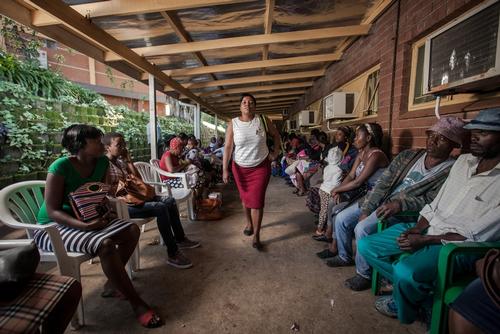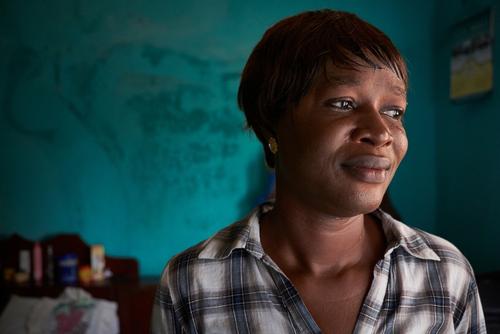The article "Towards more accurate HIV testing in sub‐Saharan Africa: a multi‐site evaluation of HIV RDTs and risk factors for false positives" was first published in the Journal of the International AIDS Society.
MSF study on HIV rapid diagnostic tests confirm that the diagnosis of HIV should not be based on results from a single HIV rapid diagnostic test.
Amsterdam – An evaluation of the accuracy of HIV tests in five sub-Saharan African countries has been carried out by Médecins Sans Frontières (MSF). The study was conducted in collaboration with the Institute of Tropical Medicine in Antwerp, and co-investigators from the respective ministries of health. It confirmed the need to carefully select multiple HIV rapid diagnostic tests (RDTs) in an algorithm/sequence for making an HIV diagnosis.
This was the first systematic head-to-head evaluation of the most widely used rapid diagnostic tests. The eight HIV rapid diagnostic tests were evaluated using samples from Cameroon, Democratic Republic of Congo, Guinea, Kenya and Uganda. The main findings, which were published in the Journal of the International AIDS Society in March 2017, were as follows:
All eight HIV rapid diagnostic tests that were evaluated showed very high sensitivity (i.e. capacity of correctly detecting an individual with HIV infection), ranging from 98.8% to 100%.
However, the specificity (i.e. the tests’ ability to correctly identify individuals without HIV infection) varied greatly ranging from 90.4% to 99.7%.
Several factors, including gender, provider-initiated testing and the geographical origin of specimens, were associated with false-positive results. Additional investigations are needed to explore this.
These findings confirm that the diagnosis of HIV should not be based on results from a single HIV rapid diagnostic test. A combination of HIV tests, and more specifically an algorithm/sequence of tests of two or three different HIV rapid tests, is required to make an HIV-positive diagnosis. This is recommended by the World Health Organization (WHO) and followed by MSF in its programmes.
“This publication reports on the performance of individual HIV rapid tests, but not the accuracy of entire HIV testing algorithms,” says MSF’s Dr Cara S Kosack, author of the article in the Journal of the International AIDS Society. “The results underscore the challenges in designing accurate testing algorithms, and the need for local validation to be part of the design process.”
MSF has conducted a complementary analysis on the performance of HIV testing algorithms. This has been submitted for publication in a medical peer-reviewed journal.





